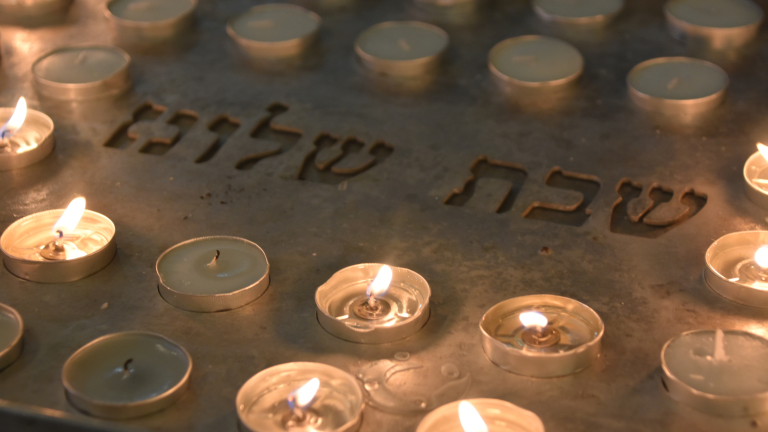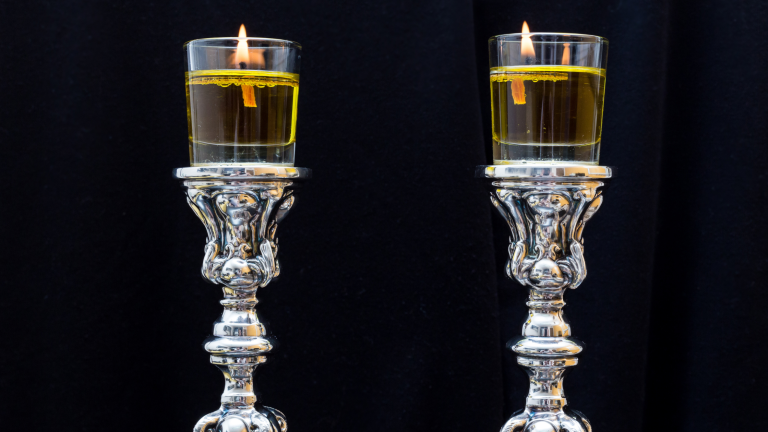We celebrate Shabbat because G-d created the world in 6 days and rested on the 7th. This has become a day of rest for Jews until today, called Shabbat. In essence, on this day, G-d created the concept of resting. The day starts on Friday evening after sundown and commences until Saturday evening, 25 hours in total. Shabbat is a very central part of Judaism and is synonymous with being a religious Jew.
The commandment of Shabbat appears twice in the Torah: After G-d took the Jews out of Egypt and brought them to Sinai in Exodus (Sefer Shemos) and later when Moses repeated the ten commandments to the Jews before his death in Deuteronomy (Sefer Devorim). In Exodus, we are urged to remember that He created the world in six days and rested on the seventh and to observe Shabbat as a testimony. In Deuteronomy, we are commanded to keep the Shabbat because G-d saved us from Egypt. The difference is that from Exodus, we learn that we should remember the Shabbat (Zochor) and perform different actions as a reminder. In Deuteronomy, we learn to refrain from doing things that are forbidden on this day (Shomor).

What is the general atmosphere of Shabbat?
Shabbat is a much anticipated and celebrated day in the Jewish calendar. It is a meaningful day of reflective peace and bonding with family. Traditionally, our Sages saved the best meat, fish, and wines of the whole week for the special day. The preparations for the day are also very extensive. It is customary to shower on Friday and don beautiful clothing reserved especially for Shabbat. All the foods that will be served and eaten throughout the day must be prepared in advance since there is no cooking or baking on the day itself.
How do we celebrate Shabbat?
We celebrate Shabbat with different rituals to remind us of the holy day and its purpose (Zochor– to remember), and we also refrain from many weekday activities throughout the day (Shomor– to guard).
The main rituals of Shabbat include
PLEASE NOTE: Once the candles are lit, one may not put them out on Shabbat. The candles must be left alight until they die out on their own, which can pose a safety threat. You can download our FREE e-book for more awareness and Shabbat safety tips here.
You can click here to find more information about Shabbat and the rituals of the day.

Donations are always appreciated,
but there are other valuable ways to get involved.


Ezras Nashim is a 501(c)3
Legal name: Chasdei Devorah Inc. DBA Ezras Nashim.
EIN number: 34-2006065
Address: 1716 56th St. Brooklyn, NY 11204
© 2020 Web design by MB Tech Design
Copy by C.S.Teitelbaum
HELP & SUPPORT | PRIVACY POLICY